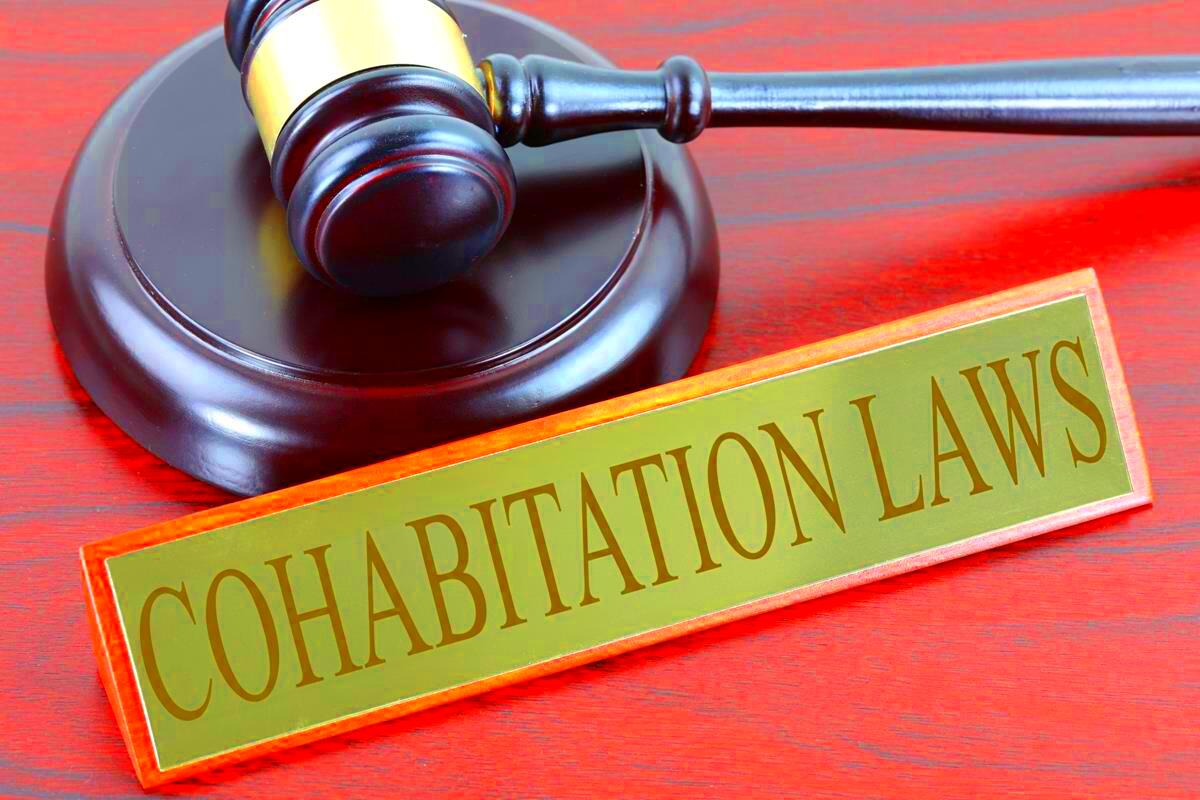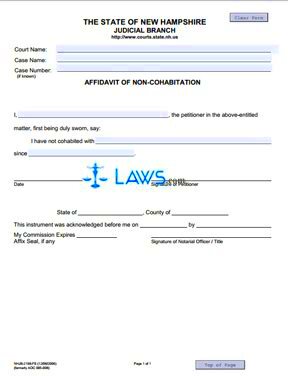Cohabitation Property Laws in New Hampshire
Cohabitation refers to an arrangement where two people live together in a long-term relationship without being legally married. In New Hampshire, cohabitation has specific legal implications, especially regarding property rights. As more couples choose to cohabit, understanding these laws becomes crucial. Cohabitation property laws help protect the rights of partners when it comes to shared assets, responsibilities, and legal claims. This post will explore key aspects of these laws to help cohabitants navigate their rights and obligations effectively.
Key Definitions Related to Cohabitation

Before diving deeper, it’s important to clarify some key terms associated with cohabitation:
- Cohabitants: Individuals who live together in a romantic relationship but are not married.
- Property: Any asset owned by an individual, including real estate, personal belongings, and financial accounts.
- Common Law Marriage: A legal framework in some states recognizing a couple as married without a formal ceremony, which does not apply in New Hampshire.
- Partnership Agreement: A legal document outlining the rights and responsibilities of cohabitants.
These definitions are essential as they lay the foundation for understanding the rights and obligations that come with cohabitation in New Hampshire.
Property Rights for Cohabitants in New Hampshire

In New Hampshire, property rights for cohabitants can be complex, as the law does not automatically grant the same rights to cohabitants as it does to married couples. Here’s what you need to know:
- Joint Property: If both partners purchase property together, they typically share equal rights to that property.
- Separate Property: Any property owned before the relationship remains the individual property of the owner unless agreed otherwise.
- Rights to Inheritance: Cohabitants do not have automatic inheritance rights unless specified in a will or trust.
- Dispute Resolution: In case of disputes regarding property, cohabitants may need to go through the courts for resolution, which can be complicated and costly.
To protect their rights, cohabitants should consider drafting a partnership agreement that outlines how property will be handled. This agreement can address issues such as:
- Ownership percentages of jointly purchased assets
- Responsibilities for mortgage or rent payments
- What happens to shared property if the relationship ends
Being proactive in understanding and outlining property rights can help avoid future disputes and protect both partners’ interests.
Legal Agreements for Cohabitants
Creating a legal agreement is an important step for couples who choose to cohabit. These agreements help clarify each partner’s rights and responsibilities, reducing misunderstandings and potential conflicts. While not legally required, having a written agreement can provide significant peace of mind. Here are a few types of legal agreements that cohabitants might consider:
- Partnership Agreement: This outlines how property and financial responsibilities are shared. It can specify who owns what, how expenses are divided, and what happens to shared property if the relationship ends.
- Living Together Agreement: Similar to a partnership agreement, this document details daily responsibilities, such as household chores and bill payments.
- Separation Agreement: If a couple decides to part ways, this agreement can outline how shared assets and responsibilities are divided.
When drafting these agreements, it’s wise to consult with a lawyer familiar with New Hampshire cohabitation laws. This ensures that the agreement complies with state laws and effectively protects both partners’ interests.
How Cohabitation Affects Inheritance Rights
One significant aspect of cohabitation is its impact on inheritance rights. Unlike married couples, cohabitants do not have automatic inheritance rights in New Hampshire. This means if one partner passes away without a will, the surviving partner may not inherit any of the deceased’s property. Here are some key points to consider:
- Intestate Succession: If a cohabitant dies without a will, their assets will be distributed according to state intestacy laws, which may exclude the surviving partner.
- Importance of a Will: To ensure that your partner is taken care of after your death, it’s essential to create a will that specifies your wishes regarding property distribution.
- Trusts: Setting up a trust can also be a smart way to manage assets and provide for a partner, ensuring they receive certain benefits regardless of intestate laws.
By taking these steps, cohabitants can better protect their loved ones and ensure their wishes are honored after death.
Dispute Resolution Among Cohabitants
Disputes can arise in any relationship, and cohabiting couples are no exception. However, resolving these disputes can be more complicated without the legal protections afforded to married couples. Here are some common ways cohabitants can address conflicts:
- Open Communication: The first step is always to communicate openly about the issue. Many conflicts can be resolved through honest conversation.
- Mediation: If direct communication doesn’t work, seeking a neutral third party, such as a mediator, can help both partners express their concerns and find common ground.
- Legal Action: As a last resort, cohabitants can take legal action to resolve disputes. This may involve filing a lawsuit to claim property rights or enforce agreements.
Understanding these methods can help cohabitants handle conflicts more effectively and maintain a healthier relationship. It’s essential for partners to approach disputes with a willingness to compromise and find solutions that work for both.
Implications of Ending a Cohabitation Arrangement
Ending a cohabitation arrangement can be emotionally challenging and legally complex. Unlike marriage, where legal frameworks guide the divorce process, cohabitants may face uncertainties about their rights and responsibilities when parting ways. Understanding the implications of ending a cohabitation arrangement is crucial to ensure a smoother transition. Here are some key aspects to consider:
- Property Division: One of the main issues when cohabitants separate is how to divide shared property. If no legal agreements are in place, disputes may arise regarding ownership and asset distribution.
- Financial Responsibilities: Partners must determine how to handle joint debts and bills. Discussing these responsibilities early on can help prevent complications later.
- Emotional Impact: Ending a cohabitation can take an emotional toll on both partners. It’s important to seek support from friends, family, or professionals to navigate this tough period.
To mitigate these challenges, cohabitants should consider drafting a separation agreement that outlines how to handle property and financial matters. This proactive approach can help reduce conflict and clarify expectations.
Frequently Asked Questions
When it comes to cohabitation property laws, many questions arise. Here are some common FAQs to clarify any uncertainties:
- Do cohabitants have the same rights as married couples? No, cohabitants do not have the same automatic rights as married couples in New Hampshire.
- Is a partnership agreement legally binding? Yes, if drafted correctly and with legal guidance, a partnership agreement can be legally binding.
- What happens to shared property if we separate? The division of shared property can be complex, so having a written agreement is essential to outline the distribution of assets.
- Can we claim alimony after separation? Cohabitants typically do not have a legal right to alimony, unlike married couples.
Understanding these common questions can help cohabitants make informed decisions about their rights and responsibilities.
Conclusion
Cohabitation is a common arrangement for many couples today, but it comes with its own set of legal considerations. By understanding cohabitation property laws in New Hampshire, partners can protect their rights and responsibilities. Legal agreements, knowledge of inheritance rights, and effective dispute resolution strategies can significantly ease potential challenges. It’s essential for cohabitants to communicate openly and seek legal advice when needed. This proactive approach not only safeguards both partners but also fosters a healthier relationship, whether together or apart. Always remember, being informed is the first step towards ensuring your rights and interests are protected.


